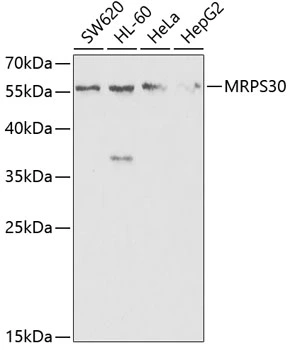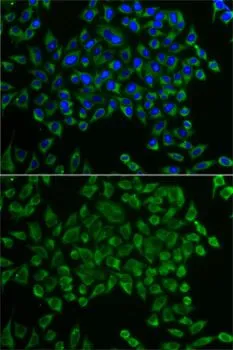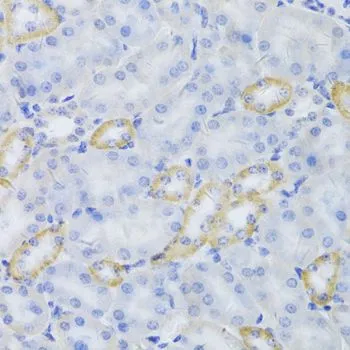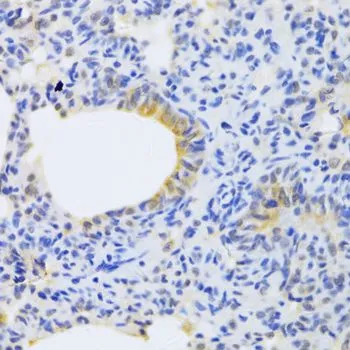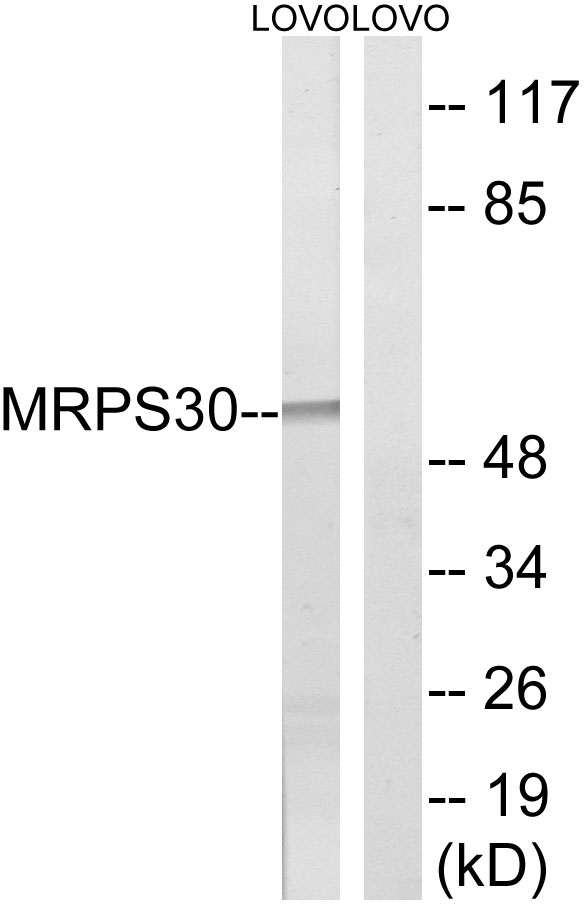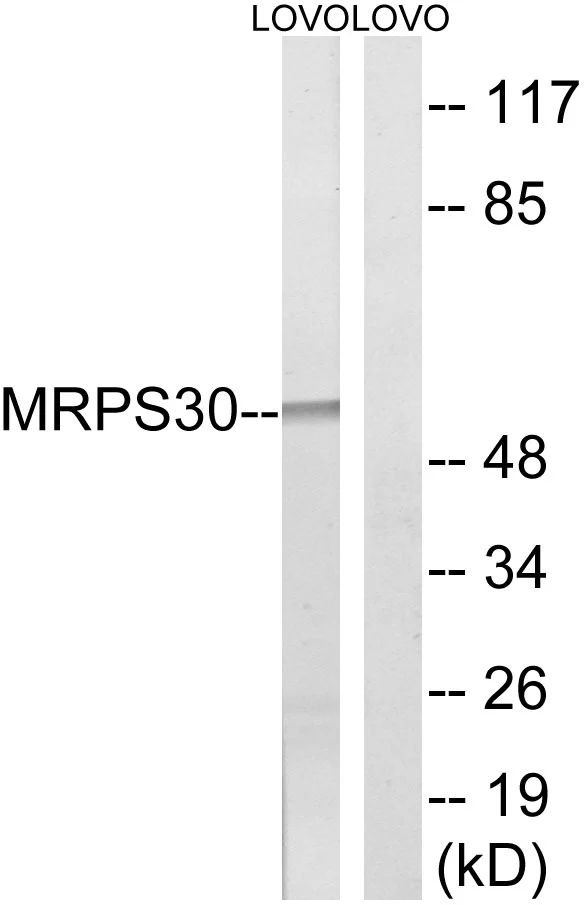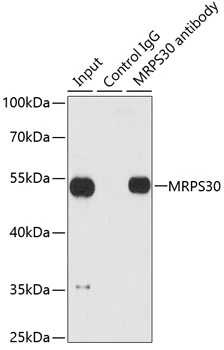
IP analysis of HepG2 cell lysate using GTX54320 MRPS30 antibody. Antibody amount : 1microg / 200microg lysate Dilution : 1:1000
MRPS30 antibody
GTX54320
ApplicationsImmunoFluorescence, ImmunoPrecipitation, Western Blot, ImmunoCytoChemistry, ImmunoHistoChemistry, ImmunoHistoChemistry Paraffin
Product group Antibodies
ReactivityHuman, Mouse, Rat
TargetMRPS30
Overview
- SupplierGeneTex
- Product NameMRPS30 antibody
- Delivery Days Customer7
- Application Supplier NoteWB: 1:500 - 1:2000. ICC/IF: 1:50 - 1:100. IHC-P: 1:50 - 1:200. IP: 1:50 - 1:200. *Optimal dilutions/concentrations should be determined by the researcher.Not tested in other applications.
- ApplicationsImmunoFluorescence, ImmunoPrecipitation, Western Blot, ImmunoCytoChemistry, ImmunoHistoChemistry, ImmunoHistoChemistry Paraffin
- CertificationResearch Use Only
- ClonalityPolyclonal
- ConjugateUnconjugated
- Gene ID10884
- Target nameMRPS30
- Target descriptionmitochondrial ribosomal protein S30
- Target synonymsMRP-S30, PAP, PDCD9, S30mt, mL65, large ribosomal subunit protein mL65, 28S ribosomal protein S30, mitochondrial, 39S ribosomal protein S30, mitochondrial, large ribosomal subunit protein mS30, mitochondrial large ribosomal subunit protein mL65, mitochondrial large ribosomal subunit protein mS30, programmed cell death 9
- HostRabbit
- IsotypeIgG
- Protein IDQ9NP92
- Protein NameLarge ribosomal subunit protein mL65
- Scientific DescriptionMammalian mitochondrial ribosomal proteins are encoded by nuclear genes and help in protein synthesis within the mitochondrion. Mitochondrial ribosomes (mitoribosomes) consist of a small 28S subunit and a large 39S subunit. They have an estimated 75% protein to rRNA composition compared to prokaryotic ribosomes, where this ratio is reversed. Another difference between mammalian mitoribosomes and prokaryotic ribosomes is that the latter contain a 5S rRNA. Among different species, the proteins comprising the mitoribosome differ greatly in sequence, and sometimes in biochemical properties, which prevents easy recognition by sequence homology. This gene encodes a 28S subunit protein that is similar to the chicken pro-apoptotic protein p52. Transcript variants using alternative promoters or polyA sites have been mentioned in the literature but the complete description of these sequences is not available. [provided by RefSeq, Jul 2008]
- ReactivityHuman, Mouse, Rat
- Storage Instruction-20°C or -80°C,2°C to 8°C
- UNSPSC12352203
References
- Min S, Kwon SM, Hong J, et al. Mitoribosomal Deregulation Drives Senescence via TPP1-Mediated Telomere Deprotection. Cells. 2022,11(13). doi: 10.3390/cells11132079Read this paper

